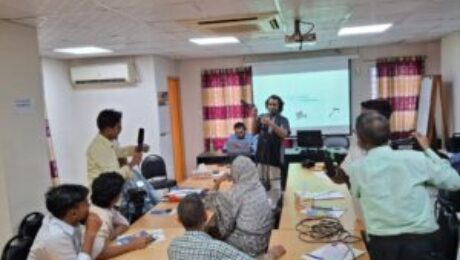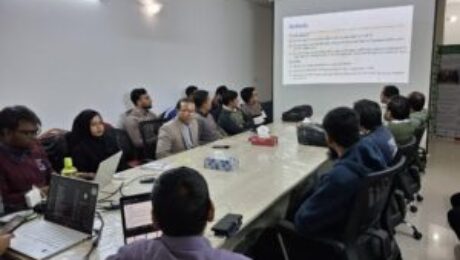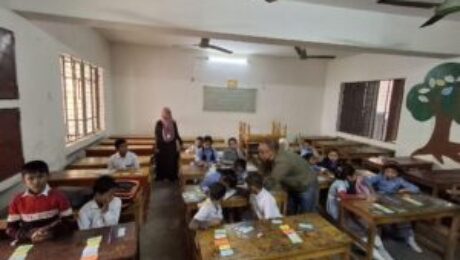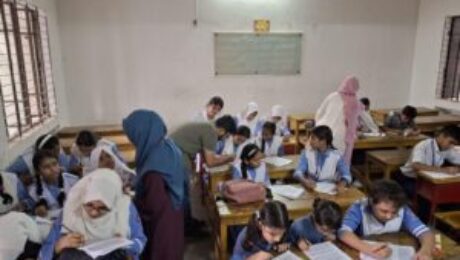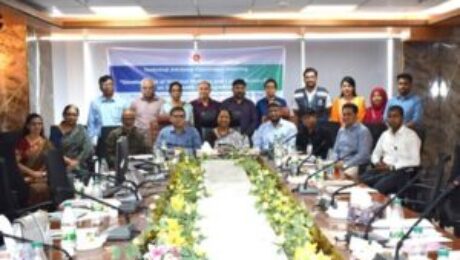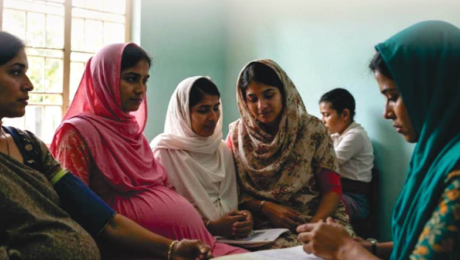Despite Bangladesh’s improving economic outlook, public investment in health remains low, with high Out-of-Pocket (OOP) expenses and per capita spending (USD 42) falling short of WHO recommendations. Although some health indicators are progressing, issues like neonatal mortality and malnutrition persist, highlighting the need for increased government funding. However, challenges around fund absorption, efficiency, and accountability
- Published in Health Systems, Our Work
No Comments
As part of CHORUS Innovation Fund Round2, ARK Foundation is implementing Drug Seller and AMR study in urban health settings of Bangladesh with the technical support of University of LEEDs and financial support of FCDO. Aim of the study is to better understand the role of formal and informal drug sellers (DS) regarding antibiotic drug
- Published in Antimicrobial Resistance, Our Work
Urbanization is a prevailing global phenomenon, resulting in pronounced disparities in resource allocation and health outcomes within urban areas, notably in South Asia. The role of media in shaping policy agendas remains understudied, particularly regarding its impact on urban health policy formulation. Our study seeks to explore the interplay between media coverage, research evidence, and
- Published in Health Systems, Our Work
Different types of tools have been developed to measure health status of adults around the world which are widely used in developing and developed countries and they are playing an important in improving the quality of health services. EQ-5D-3L and 5L are such kind of health related data collection tools simple questions which have been
- Published in Health Systems, Our Work
We are studying the quality of life in children and adolescents to help improve healthcare decisions. To do this, we use a simple tool called EuroQoL, which measures health. There is a special version of this tool for children, called EQ-5D-Y, and a Bangla version of the 3-level tool is being tested in Bangladesh. In
- Published in Health Systems, Our Work
Currently, various questionnaires/tools have been developed to measure and assess the health status of children and adolescents around the world, which are used to improve the quality of healthcare in developed and developing countries. The EQ-5D is a simple and common questionnaire that is widely used to measure the health of adults in developed and
- Published in Health Systems, Our Work
This National Oral Health Strategic Action Plan of Bangladesh 2025-2030 will guide the national response to Oral Health in Bangladesh over a period of five years. This follows the Action Plan for Oral Health in South-East Asia 2022-2030 and Global Strategy and Action Plan on Oral Health 2023-2030. This 2025-2030 strategy was designed by adopting
- Published in Non-Communicable Disease, Our Work
Phase-1 The project is a comprehensive effort by the Ministry of Railway to create a smoke-free environment in railway stations and trains across Bangladesh. The ARK Foundation has played a pivotal role in this initiative by conducting extensive baseline and endline surveys at 10 selected railway stations, chosen in consultation with Ministry of Railway. The
- Published in Climate Change and Environment, Our Work
Partner Organization: Horizons Institute, University of Leeds ARTS4AMR (Arts for Antimicrobial Resistance) is a pilot project for arts-based awareness-raising on antimicrobial resistance (AMR) in an underserved population in urban Bangladesh. This project aimed to highlight the value of embedding arts and culture into public health interventions to enhance participant experience and community involvement, and amplify
- Published in Antimicrobial Resistance, Our Work
Download Report Bangladesh is preparing to introduce a maternity insurance scheme by 2026, aligning with its National Social Security Strategy. This report presents an evidence-based framework tailored to the country’s healthcare and labour realities, especially for low-income and informal sector women. Drawing on national data and international best practices, it outlines a universal, mandatory, and
- Published in Featured, Maternal Newborn Child and Reproductive Health, Report, Resources

